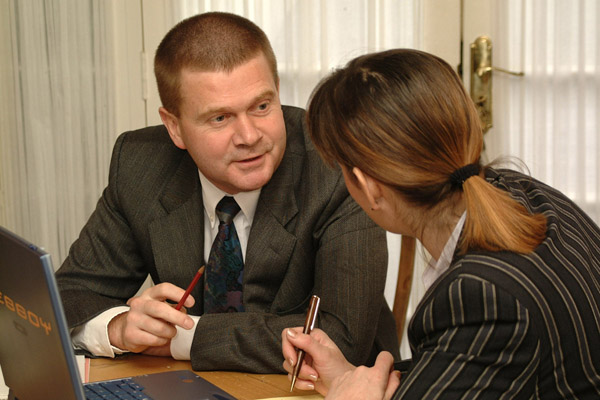Communication is fundamental to all working relationships, but bad communication causes more controversy in business and industry than any other factor.
As organisations grow bigger communication deteriorates. The larger the organisation the more impersonal communication can feel. With some government departments and multi-nationals employing millions of people lines of communication become stretched and can break down.
At the same time people expect to be treated as individuals, they need to be consulted, informed, given the opportunity to air their points of view and to have those opinions respected. Attempting to bridge this gap is the role of the good communicator.
The Communication Process
The really sad truth about communications is that what you believe you have said is not the point. What is important is what people think you have said and how the message has been received.
For communication to be successful, the listener needs to understand the message exactly how the speaker intended. It is not necessary for the listener to agree with the message as long as they understand it.
Miscommunication – or Communication Breakdown
Breakdown in Communication is costly to business. It wastes time, money and importantly customer goodwill. The effect of miscommunication on the team can be reduction in morale, a breakdown in teamwork and personality conflicts.
Communication Breakdown is usually caused because the listener did not receive the message as the speaker intended due to incorrect de-coding.
- Effective communication is vital to the quick and accurate transmission of information and instruction.
- Effective communication skills allow important ideas to be aired and new solutions to be considered.
- Effective communication is one of the most important elements in avoiding mistakes which costs business both time, money and credibility.
While much communication in business today is conducted by electronic means, it is still the personal communication – the public speaking – which in the final analysis is the most effective way of communicating your information, your message or your instructions. The benefit of personal interaction is that you are immediately aware if you have been misunderstood or even not understood. You are then able to address the problem before it becomes a flame war of gigantic proportions. The number of conflicts which have been resolved when one side has said something like “ … but I didn’t mean that! What I was trying to say was this!” bear testimony to the belief that most conflicts are an outcome of miscommunication.
This is why at Trischel we focus on your personal presentation skills – The skill that allows you to express your point of view, and to impart your knowledge clearly and concisely. Sometimes the hi-tech presentation aids become the presentation and suppress the personal interaction which is essential if we are to persuade people to our point of view.
So is Effective Communication an art, a science or a practical skill which can be learnt?
It is a simple practical skill that can be learnt, and once learnt it becomes an art, and as soon as something becomes an art someone is sure to turn it into a science!
All these skills form the art of communication, but they are easily leant principles which will improve your ability to communicate, not just at work, but also in the social sphere.
Michele @ Trischel


